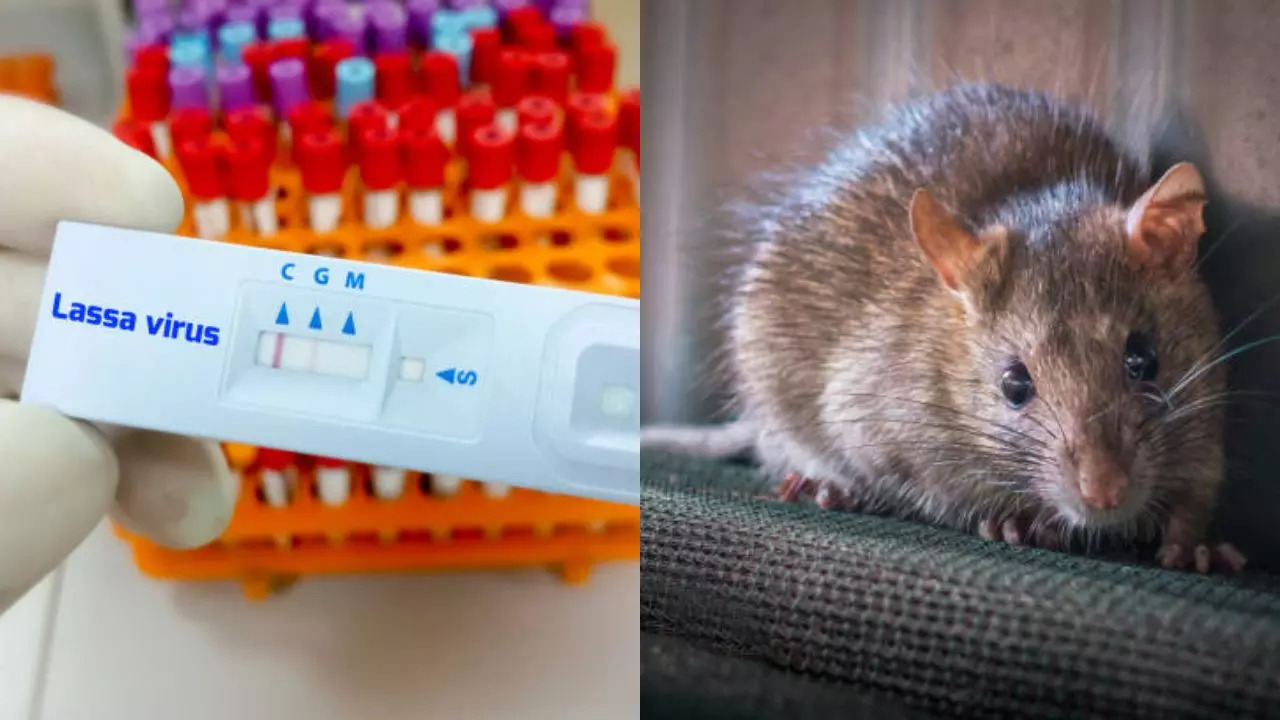Contents
-
news
-
Health
Iowa resident dies in suspected case of Lassa fever, a frightening, rare viral disease
US health officials are investigating the death of an Iowa resident – who had recently traveled to West Africa and is suspected of having Lassa fever – a rare, viral hemorrhagic disease that you can get from humans or rats infected with the virus. Can. The disease is rare in the country, according to the CDC, but the patient returned earlier this month from West Africa — where it is rampant. Read on to know more.

The virus is spread through the feces and urine of infected rats, while you can also get it from contact with the body fluids of an infected person.
U.S. health officials are investigating the death of an Iowa resident as a suspected case of Lassa fever — a rare, viral hemorrhagic disease that you can get from humans or rats infected with the virus. The disease is rarely seen in the United States, but the patient returned from West Africa earlier this month, according to officials.
The man was not sick during the trip, so the risk of spreading the infection to fellow airline passengers is “extremely low,” according to the Centers for Disease Control and Prevention. The virus is spread through the feces and urine of infected rats, while you can also get it from contact with the body fluids of an infected person.
The suspected patient was isolated and admitted to the hospital.
According to officials, the patient has been hospitalized in isolation at the University of Iowa Health Care Medical Center while testing has shown the individual is presumptively positive for Lassa fever. Officials say if the results are confirmed, the Iowa case would be the ninth known case of Lassa fever since 1969 in travelers returning to the US from areas where the disease has been found.
The CDC says they are helping Iowa health officials identify people who had contact with the patient after symptoms began. People identified as close contacts will be monitored for 21 days. According to state health officials, the patient was exposed to rodents in West Africa, where the disease is widespread. In rare cases, it can also spread between people through mucous membranes or sexual contact.
What is Lassa fever and what are its symptoms?
According to experts, Lassa fever is a type of viral haemorrhagic fever – a group of viruses that cause uncontrolled bleeding, which rarely makes people extremely unwell. It is common in the African countries Nigeria, Benin, Guinea, Liberia, Mali and Sierra Leone.
Pregnant women are especially at risk for miscarriage and other serious complications. While 80 percent of people with the disease experience mild symptoms, the rest become seriously ill. Some of these signs include:
- Fever
- tiredness and extreme fatigue
- cough and sore throat
- Headache
- pain in the chest, neck or stomach
- breathlessness
- severe vomiting or diarrhea
- bleeding from your mouth, nose, or eyes
- recovery
- Confusion
What is Complications of Lassa Fever,
According to experts, even in mild cases, one in three people suffering from Lassa fever suffers from partial or complete hearing loss, which can be temporary or permanent. People with severe Lassa fever can have life-threatening complications, including:
- pregnancy loss or miscarriage
- inflammation of the lining around your heart
- fluid around your lungs
- Infection and inflammation of organs like your liver
- low platelets leading to bleeding
- sudden kidney failure
- brain function problems
- acute respiratory distress syndrome
- severe blood clotting disorders
- sepsis
Get the latest news live on Times Now with breaking news and top headlines from around the world.


